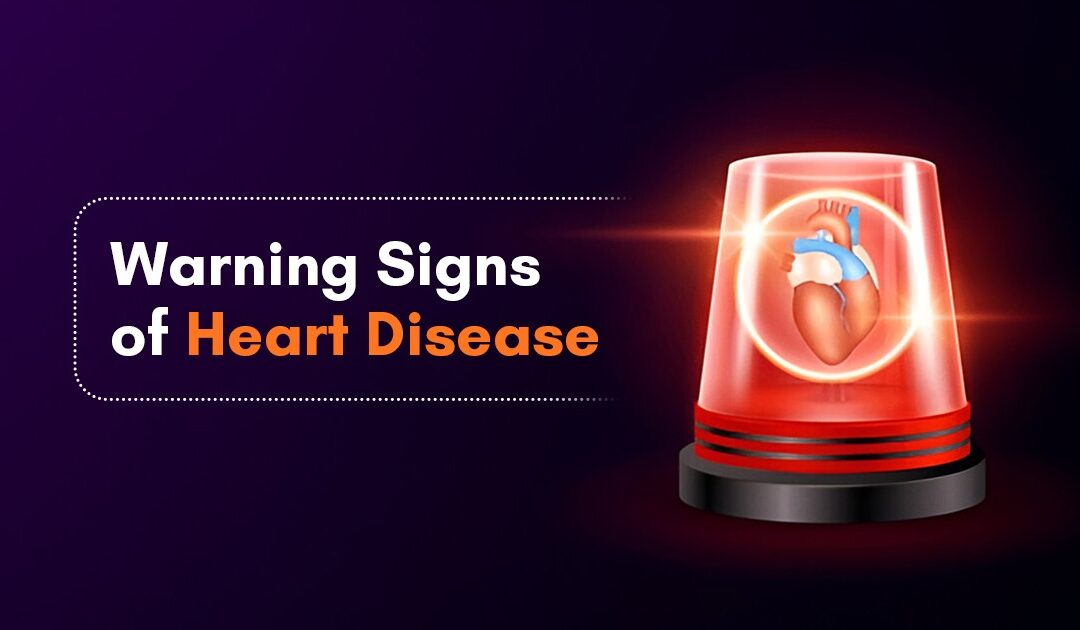
Recognizing the Warning Signs of Heart Disease
What is Heart Disease?
Heart disease is a broad term for a group of conditions that affect the heart and blood vessels. The most prevalent one of those is coronary artery disease, which can result in heart attacks. Other diseases, such as heart failure, arrhythmias (irregular heart rhythms), and problems with the heart valves, also exist. These conditions are unpredictable. They can either take years or may sometimes even occur suddenly. Since heart disease remains one of the leading causes of illness and death, it’s essential to understand its warning signs and know what to look for and when to seek assistance.
What are the Symptoms of Heart Disease?
At first glance, symptoms of heart disease may be extremely non-specific and not alarming at all. The major warning symptom is chest pain or discomfort; however, it is not necessarily a stabbing pain. Most people describe it as pressure, tightness, or a feeling of heaviness in the chest. In some cases, the discomfort may even spread to the arms, neck, jaw, back, or even the upper stomach. While not everyone experiences chest pain, women, the elderly, and diabetics are more susceptible to experiencing subtle symptoms.
Shortness of breath is also another common symptom. One may experience it on effort or at rest, or worse, when reclining. Other people may wake up experiencing shortness of breath at night. Palpitations, or a feeling of an irregular or abnormally rapid heartbeat, may be a symptom of heart disease if dizziness or fainting is accompanied by them. Unexplained fatigue is another ignored symptom. While it is not the kind of fatigue that occurs at the end of a long day, it is persistent fatigue that interferes with daily activities and is not relieved by rest.
Swelling of the legs, feet, or ankles, or edema, may be a sign that the heart is not circulating blood as well as it should, which results in the fluid building up in the lower half of the body. Some individuals may also experience sudden weight gain or bloating of the belly due to the same reason. Other symptoms may include dizziness, fainting, cold sweats, chronic coughing (sometimes with pink or white mucus), nausea, or a feeling of indigestion. If you are experiencing one of these symptoms, or any combination of them, if new or persistent, you must visit a healthcare professional.
What is Heart Disease?
Heart disease is caused by several factors, and most often it is a combination of these. The most common cause is usually atherosclerosis, or the deposit of fatty tissue (plaque) in the wall of the artery. It blocks the arteries and reduces blood flow to the heart muscle. High blood pressure, high cholesterol, diabetes, obesity, smoking, inactivity, and poor diet all play a large role in the development of atherosclerosis and heart disease.
Family history is also a major factor. If you have near relatives who have had heart disease, particularly at a young age, you are at increased risk. There are certain heart diseases one is born with, referred to as congenital heart defects. Infections, certain medications, and long-term diseases can also harm the heart or one of its valves. Excessive alcohol consumption, drug abuse, and chronic stress can also put additional stress on the heart.
How Is Heart Disease Diagnosed? What Can You Do?
Diagnosis of heart disease begins with a comprehensive evaluation for symptoms, medical history, and risk factors. After that, a physical examination is prescribed, which is followed by tests to establish the diagnosis and determine the extent. Blood tests to look for signs of heart damage or risk factors, an electrocardiogram (ECG) to evaluate heart rhythm, and an echocardiogram to view the heart structure and function are standard. In some situations, a chest X-ray is also performed to examine the size of the heart and lung fluid. In some situations, advanced imaging such as CT scans, MRIs, or cardiac catheterization is required.
There are a few simple steps that can be followed to prevent heart disease or detect it in its early stages, such as eating a balanced diet with lots of fruits, vegetables, whole grains, and lean proteins, and avoiding salt, sugar, and unhealthy fats. Making minor adjustments in the day, like regular brisk walking, swimming, or cycling, keeps the heart in a healthy condition. Avoid tobacco products in all forms and excessive alcohol consumption. Reducing stress through relaxation, hobbies, or social contact can also enhance heart health. Routine checkups with the doctor, even if you are not sick, are also recommended to check blood pressure, cholesterol, and blood sugar levels. If there is a family history of heart disease, speak to your doctor about your risk factors and be particularly alert for symptoms. Early intervention and preventive steps can largely reduce the risk of serious complications and keep your heart healthy for years to come.


